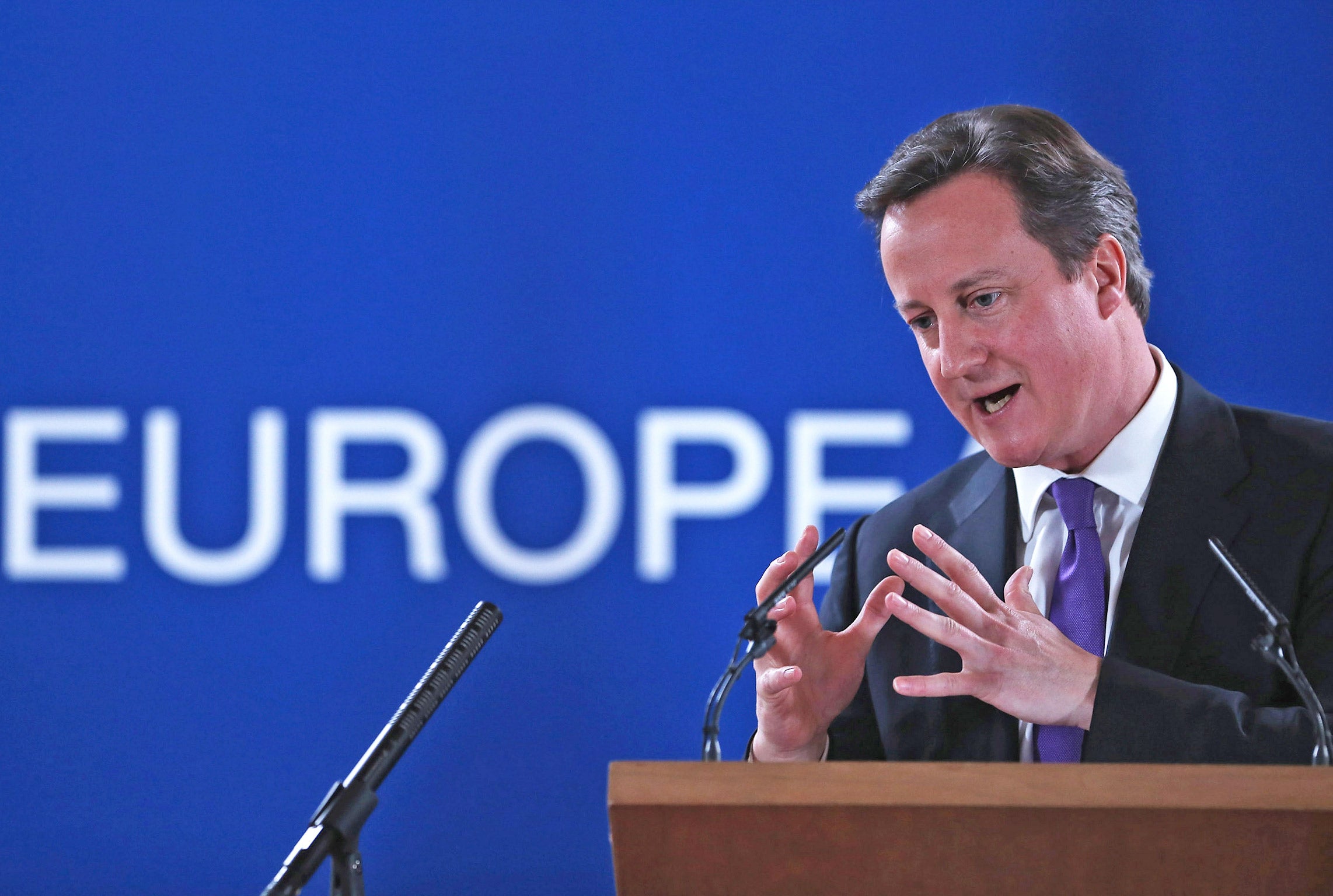Cameron returns to Brussels hoping for better luck
After Juncker failure, PM expected to receive more sympathy over key EU poistions

David Cameron returns to Brussels on Wednesday hoping for more luck in pushing his choices for key EU positions as European leaders gather to decide the name of a new foreign policy chief to replace Britain’s Catherine Ashton.
The Prime Minister is expected to receive a more sympathetic hearing from his 27 fellow EU heads of state, after his failure to block the nomination of Jean-Claude Juncker was sealed yesterday with his final approval by the European Parliament.
Front-runners for the High Representative post vacated by Baroness Ashton – which will be debated by the leaders over dinner tonight – include the current Italian foreign minister, Federica Mogherini. However, some nations are pushing for a candidate from eastern Europe such as the EU aid commissioner, Kristalina Georgieva, of Bulgaria.
They will also discuss the next European Council president, and while Britain has not put forward any candidates, there is more consensus around the names and little of the controversy which enveloped Mr Juncker.
British officials view the current Danish Prime Minister, Helle Thorning-Schmidt, and Ireland’s Taoiseach, Enda Kenny, as strong candidates to head the body which bring the 28 heads of state together – a feeling shared in many other European capitals.
As well as greater consensus over the potential candidates, the process is also more to the liking of the British Government, which opposed the European Parliament’s role in putting forward Mr Juncker as the sole candidate. “This is far more of an open field, the leaders get together and discuss the best person,” said a British diplomat.
Mr Cameron fought a fierce battle to the keep the former Luxembourg Prime Minister from being nominated as President of the European Commission – the EU’s executive arm – arguing that he represented the old federalist vision of the EU and had no democratic legitimacy.
But only Hungary sided with Mr Cameron and the European Parliament approved Mr Juncker’s candidacy yesterday by 422 votes to 250 against.
In his speech, Mr Juncker called on governments and the EU to pay heed to the voters in May’s elections, which saw a surge in support for eurosceptic parties. “We have to allay their fears [and] fulfil their hopes,” he said.
Outlining his programme for the next five years, he said he would pursue policies ranging from more investment to stimulate growth to reducing mobile phone roaming charges. In a nod to Britain, he spoke about slashing red tape and reducing the role of Brussels in national affairs.
While his nomination was supported by the two biggest political groups in the parliament – the centre-right European People’s Party and the left-leaning Socialists & Democrats – the group including Conservative MEPs opposed him.
Mr Juncker does however see Britain as a crucial member of the EU. He has shown a willingness to reach out to Britain, which will be seeking an influential economic portfolio for Lord Hill of Oareford, named yesterday as the Government’s next commissioner.
Subscribe to Independent Premium to bookmark this article
Want to bookmark your favourite articles and stories to read or reference later? Start your Independent Premium subscription today.

Join our commenting forum
Join thought-provoking conversations, follow other Independent readers and see their replies